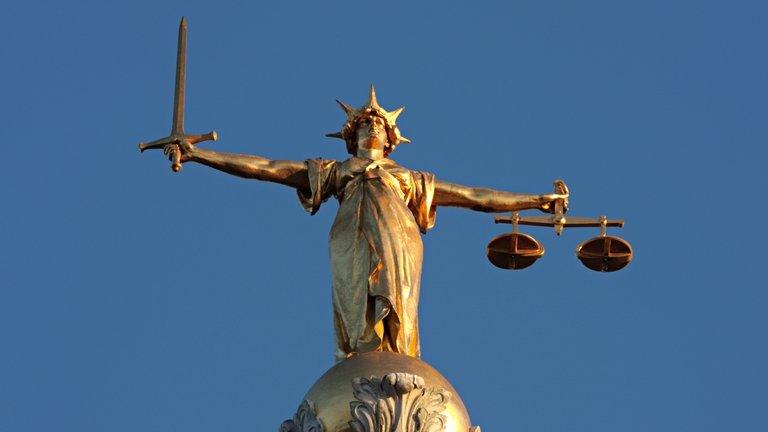Police 'overwhelmed' by number of child abuse images
- Published

Police forces have collected millions of images from computers
Police forces are struggling to cope with the mountain of child abuse images they have to deal with, according to children's charity the NSPCC.
It says it is "gravely concerned" that some police forces do not have enough resources to investigate online abuse.
Some forces are seizing hundreds of computers each year but have only a handful of officers to examine them.
Ministers say they are "fully committed to supporting the police develop the tools and capabilities they need".
Images examined
The NSPCC says Freedom of Information requests reveal that thousands of computers are being confiscated by forces in England and Wales but there are "relatively few officers" available to analyse the material they contain.
Police forces employ highly skilled forensic examiners to search computers seized during raids for images of child abuse, which they then pass on to investigators.
The FOI figures show Lancashire Constabulary seized 745 computers last year and employed three forensic examiners to extract images from them.
Hertfordshire Constabulary seized 516 computers and employ four forensic examiners to extract the images from the hard drives.
Avon and Somerset Constabulary say they have seized 466 computers and employ 13 analysts - but it is not clear if all of them are forensic examiners.
The forces also employ separate staff to then analyse the images they find to identify victims and perpetrators.
Sixteen out of 43 forces in England and Wales responded to an FoI request that asked each how many computers suspected of containing child abuse images were taken last year.
Twenty-seven forces responded to a request concerning the number of officers employed to analyse the computer hard drives.
'Children at risk'
Retired detective sergeant Sharon Girling, who was appointed an OBE for her work on child abuse investigations, said the staffing figures were "very alarming".
She is concerned that Lancashire Constabulary has only three forensic examiners.
"In my experience many of these computers will have more than one hard drive and many of these hard drives will take three days to complete their examination. This is why I believe there is such a backlog," she said.
The FOI figures do not include other devices such as digital cameras, mobile phones, portable hard drives, CDs, gaming devices, tablets and videos. Yet such devices are routinely seized by police as part of these investigations.
Ms Girling, who was once a case co-ordinator on some of the most high-profile investigations, says police crime units are grossly understaffed and under-funded.
She said: "It is distressing to find that the number of police examiners has not substantially increased in 10 years even though the number of devices has increased 10-fold. This alone puts children at risk."
'Crystal clear'
Figures obtained two years ago by the NSPCC showed that five police forces had between them collected 26 million images of children being sexually abused.
The charity is calling on the National Crime Agency (NCA) to be "really proactive in alerting the Home Office" to the fact they are struggling and "to ensure the home secretary is crystal clear about the resource issues that are currently so pressing".
The NCA is responsible for co-ordinating the work of police forces in this area.
Policing minister Mike Penning says the NCA was created by the government "to lead the fight against serious crime like this".
The NSPCC is also concerned that justice is not being done in a "timely way".
Essex Police have come under fire for taking nine months to investigate suspected paedophile Martin Goldberg.
The maths teacher was found dead in September, the day after the force spoke to him about information from a Canadian investigation that he had bought videos showing naked boys.
After his death, hundreds of images were found of boys in changing rooms at his school and a leisure centre.
The delay is now being looked into by the Independent Police Complaints Commission.
In July, a senior judge in Liverpool warned that paedophiles could be avoiding jail because of delays in analysing suspects' computers.
Judge Clement Goldstone QC said during sentencing: "There are cases and there will be cases where the delay is such it could make the difference between an immediate custodial sentence and non-custodial disposal."
Correction: This report has been amended to clarify that Essex Police were not investigating Martin Goldberg about covertly filming pupils but about a separate allegation.
- Published9 September 2014

- Published7 July 2014

- Published17 December 2012
